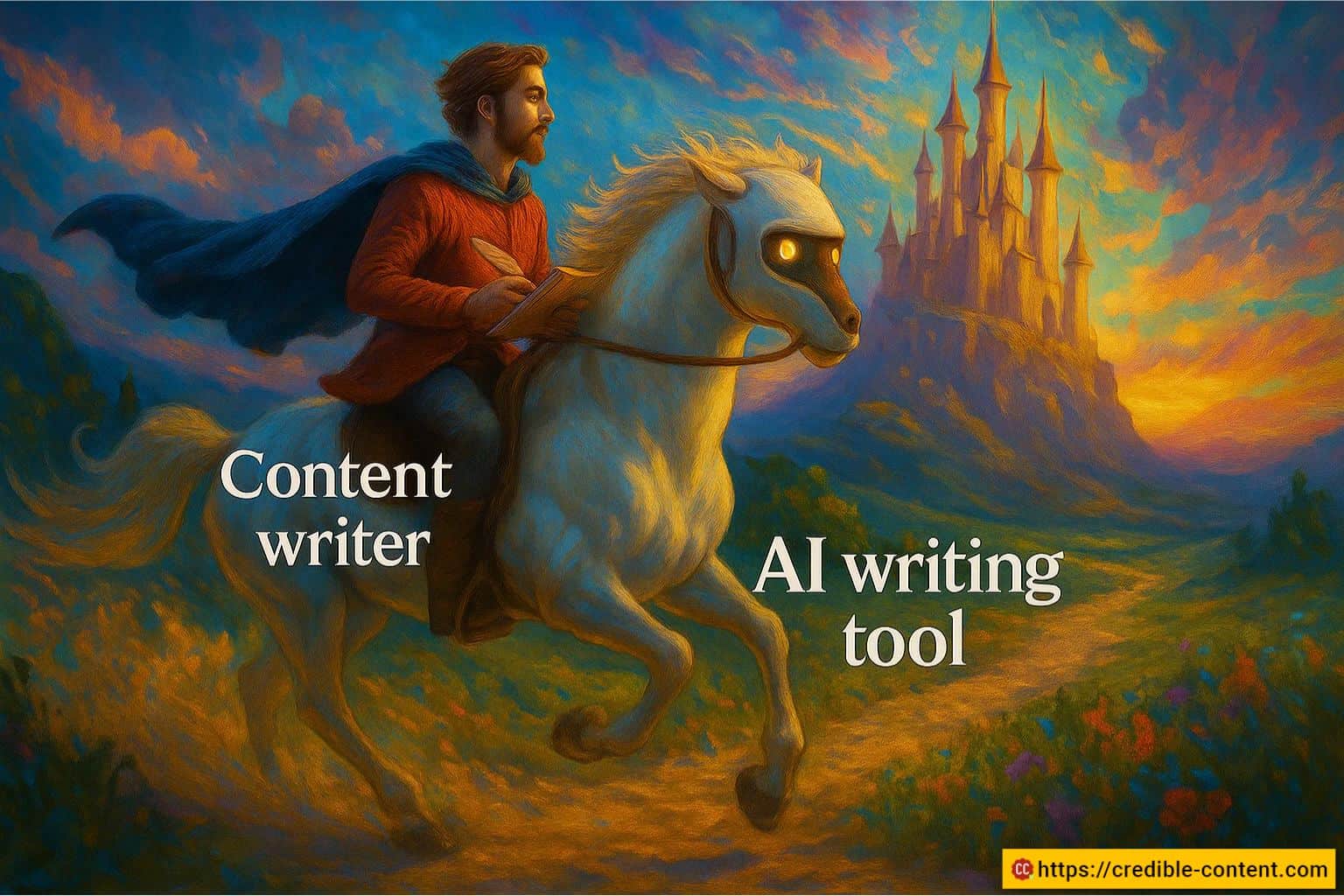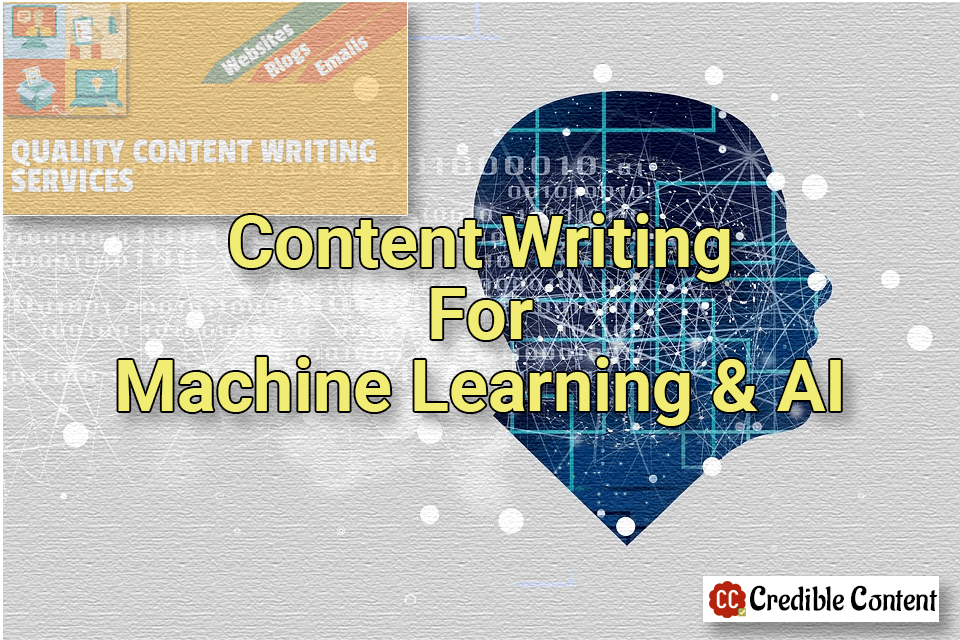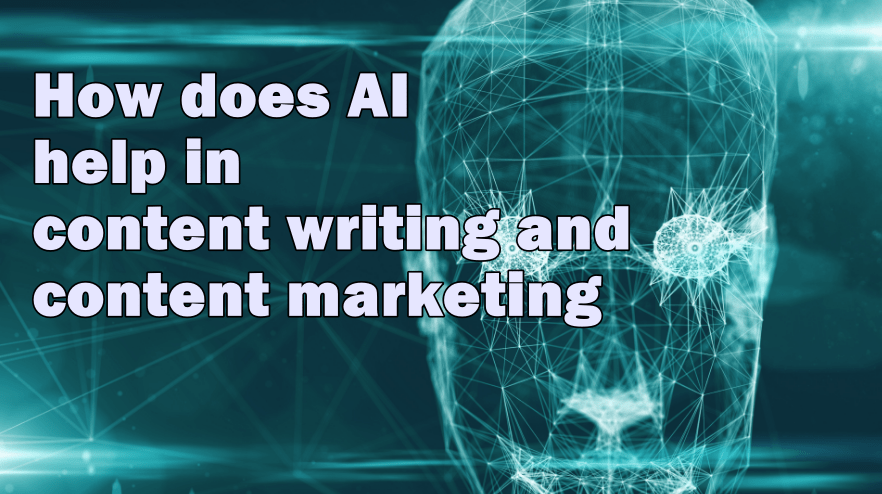I keep hearing the same thing everywhere. Businesses are dropping content writers and switching to AI tools. Many writers I know have seen their clients vanish overnight. On the surface, it makes sense – AI writes fast, it looks polished, and it feels cheap. Clients think they’re saving money while improving quality.
But the reality is that most of the AI-written content is shallow. It looks fine at first glance, but it lacks depth, accuracy, and strategy. And search engines have started to notice.
I’ve spoken with businesses who giddily went “all in” on AI content, only to watch their search traffic collapse in a few months. What seemed like a shortcut turned into a costly mistake.
That’s why I say: now is the best time to hire a content writer. Because when everyone else is filling the internet with generic AI text, human-written content stands out. It gives you an edge. It builds authority. It gets you noticed for the right reasons.
Here are 11 reasons why working with a content writer makes more sense than ever.
Strategy before sentences
AI is great at spitting out text but it has no idea why your business exists or what your customer cares about.
A content writer begins with strategy. Who are you talking to? What do they need? How do you want them to move from a blog post to a product page to a sale?
Without strategy, AI content clogs your website with noise. With a writer, every piece of content has a place in the funnel. Every sentence moves people closer to action.
Brand voice that builds trust
Do your emails, website, and blog sound like the same person? Or do they jump from robotic to casual to confusing?
AI tends to flatten voice. It sounds like “everyone.” A content writer gives you one consistent voice – a voice that builds trust. Readers know it’s you, whether they see a LinkedIn post or a product description. That consistency makes people stay longer. It makes them come back.
In fact, this is one of the biggest reasons why clients hire me – they want me to write for them how I write for myself.
Real expertise and lived detail
AI has read a million articles but hasn’t spoken to your customers and clients? No, it hasn’t. It hasn’t walked through your product demo. It hasn’t seen the look on someone’s face when a solution clicks.
A writer brings lived detail. They can interview you. They can pull in quotes, stories, and examples. They know how to explain “what worked” in a real campaign. This kind of detail signals expertise. It keeps people reading because they can feel the experience behind the words.
Conversion-focused copy across the funnel
AI can write sentences and paragraphs emulating a Nobel laurate (for fun, I made ChatGPT write like Salman Rushdie and it was awesome).
But can it sell? Not really. Can it make readers click that buy button? You know it can’t.
A content writer thinks about the funnel. At the top, you need attention. In the middle, you need trust. At the bottom, you need a clear ask: sign up, buy, book a demo. Writers build CTAs that match user intent. They know how to turn casual readers into paying customers.
That’s why you hire a writer. To move people, not just inform them.
SEO that respects search intent
Search engines don’t reward text dumps. They reward answers. They reward clarity. They reward intent.
AI can overload you with 50 blog posts. But if they don’t target the right search intent – informational, transactional, or navigational – they won’t rank or convert.
A content writer does the opposite. They choose fewer but better pages. They connect topics, link pages, and build topical authority. That means your site doesn’t just show up on Google. It stays there.
Editing, fact-checking, and risk control
AI has this nagging tendency to make things up. It mixes dates, invents stats, and quotes people who never said anything. You can’t afford that.
A content writer takes responsibility. They check facts, verify sources, and cut risky claims. They edit for accuracy, clarity, and tone. That means fewer corrections, fewer angry emails, and no embarrassment when someone points out an error in your blog.
Original ideas and point of view
Content without opinion blends into the background. AI content sounds like everything else already on the internet. Besides, AI tries to be too nice and unbiased that often kills the spirit of writing. I mean, if something sucks, it finds it quite hard to say that it sucks.
A writer knows when to take a stand. They add perspective. They point out where common advice fails. They use stories to make you memorable. A content writer can be courageous and swim against the tide, which AI mostly avoids. That’s what gets bookmarked. That’s what gets linked. That’s what people share.
Originality is the only way to stand out and human content writers deliver that.
Updates and content maintenance
Content isn’t “done” the day you publish. Stats get old. Competitors write newer guides. Links break.
AI doesn’t care about maintenance. A writer does. They update posts, refresh numbers, merge duplicate pages, and redirect what’s no longer useful. This ongoing work is what keeps your traffic alive. Without it, your site decays.
Repurposing with purpose
One blog post can become ten smaller pieces – but not if you just copy and paste.
A writer can reshape content to match each channel. Blog into an email. Blog into a LinkedIn post. Blog into a Twitter thread or a YouTube script. Each version feels natural for that platform. Each one respects the reader’s context.
That’s repurposing done right. It multiplies reach without multiplying effort.
Human + AI speed without the quality drop
AI isn’t bad, and that’s why, content writers don’t ignore AI. They use it for creating outlines, for brainstorming ideas, and for preparing rough drafts.
The good thing is that they don’t leave everything to AI. They refine, shape, and inject voice, trust, and accuracy. The result: content created faster but without the dull, generic feel of raw AI text. It’s speed plus quality – and that’s the best mix you can get right now.
Measurable outcomes and continuous testing
Here’s the real reason to hire a writer: accountability.
Writers don’t just push out text and disappear. They tie content to your goals. More traffic? Better engagement? More leads? A writer runs tests, compares results, and adapts. They treat content as a living system, not a one-off project.
That’s how you get ROI. Not from endless AI output. From focused, tested, refined writing.
Objections you will hear (and how to answer)
You’ll hear people say, “AI is cheaper.” But cheap content that doesn’t convert is the most expensive mistake.
You’ll hear, “We can write in-house.” Maybe. But who will manage the briefs, edits, and deadlines?
You’ll hear, “We only need SEO.” But rankings without conversions are vanity. You need content that sells, not just traffic.
What to look for when hiring
If you’re convinced, the next step is knowing how to pick a writer. Look for:
-
A portfolio with outcomes, not just words.
-
A clear process: research, briefs, revisions, reporting.
-
Ability to learn your industry fast.
-
A voice that matches your brand.
-
Comfort using AI as a tool, not a crutch.
These things matter more than word count or hourly rate.
How to work with a writer for best results
Hiring is just the start. The best results come when you:
-
Share your customer profiles and offers.
-
Approve a simple voice guide.
-
Review and give feedback quickly.
-
Track one north-star metric, like demo requests or trial signups.
Collaboration makes content work. Silence kills it.
The takeaway is simple. AI may write the words, but writers make them matter.
Hire a content writer now. Not later. Not “someday.” Because while your competitors publish endless generic content, you’ll publish content that sells.
That’s the deal.
If you’re serious about growing with content that works, let’s talk.



